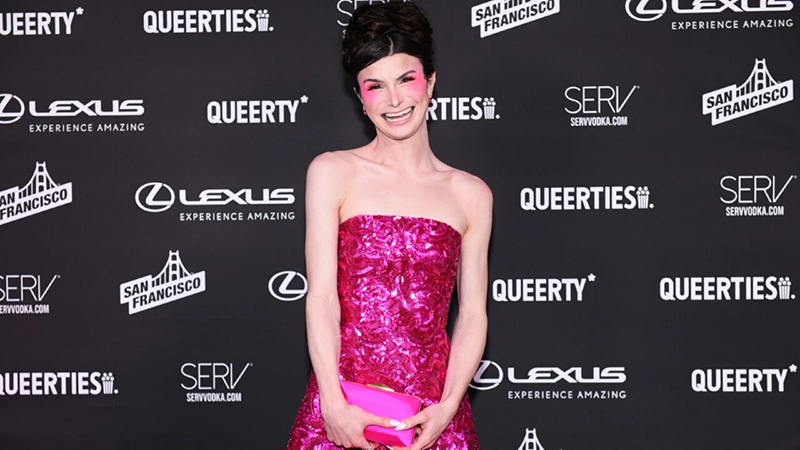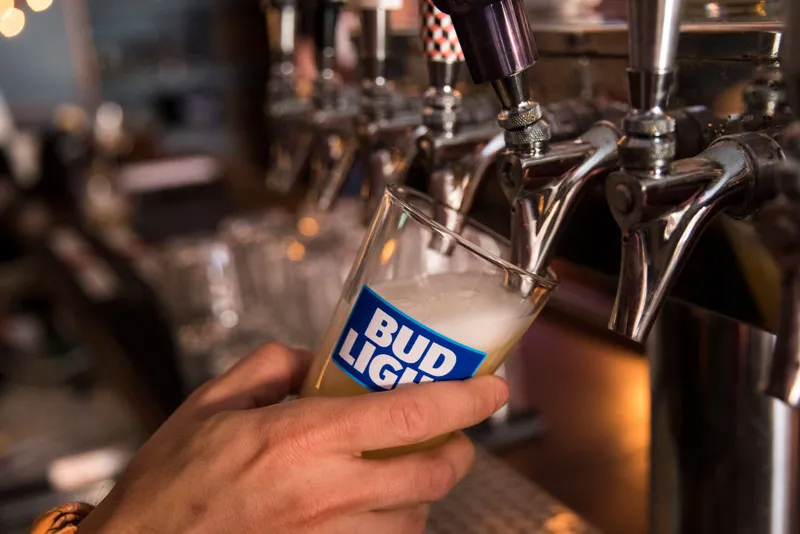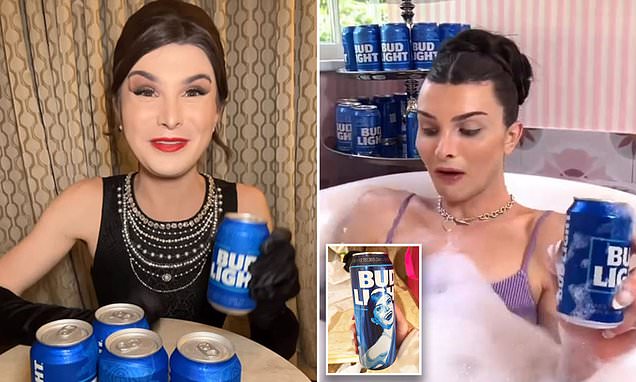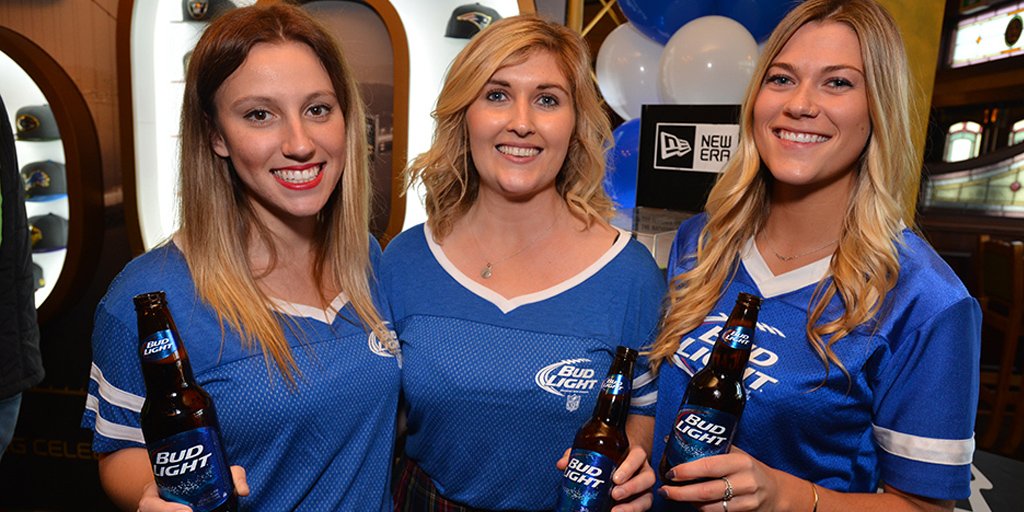According to a bar owner in St. Louis, Bud Light’s attempt at inclusivity ended up excluding almost everyone else.
Over the past weekend, Bud Light suffered a massive hit as consumers all over the country revolted against the brand’s recent move into the culture wars with their new spokesperson, transgender TikTok star Dylan Mulvaney. According to industry experts and bar owners, the company’s reckless actions alienated a significant portion of their loyal fanbase.

Jeff Fitter, the owner of Case & Bucks, a popular restaurant and sports bar in Barnhart, Missouri, shared his thoughts on the matter, stating that “society flexes its muscles sometimes and reminds manufacturers that the consumer is still in charge.” Fitter explained that in Bud Light’s attempt to be inclusive, they ended up excluding their traditional audience, including sports fans, working people, and women. This sudden shift left many feeling left out and ignored by a brand they once loved.
Although Bud Light’s parent company, Anheuser-Busch, is headquartered in nearby St. Louis, Jeff Fitter’s bar still experienced a significant decrease in sales among loyal and local consumers. In fact, the numbers were catastrophic. Over the past week, sales of Anheuser-Busch bottled products saw a 30% decrease, while draught beer sales plummeted by 50%, according to Fitter. The drop in sales among Bud Light’s core audience serves as a stark reminder of the risks brands take when they try to appeal to a new demographic at the expense of their existing customers.
“In Bud Light’s effort to be inclusive, they excluded almost everybody else, including their traditional audience.” — Bar owner Jeff Fitter stated.
Reports of declining sales among Bud Light’s traditional customer base are not unique to Missouri. According to Alex Kesaris, owner of the Braintree Brewhouse just outside Boston, the brand typically outsells Miller Lite and Coors Light by a margin of 25 to 1. However, this past week was different. Kesaris noted that 80% of Bud Light drinkers opted for other beers instead, while the remaining 20% were largely unaware of the controversy surrounding the brand’s new spokesperson. This further underscores the challenges that companies face when they try to expand their appeal to new audiences without alienating their core base.
“They didn’t order it again,” he said, after other patrons told them about the Bud Light marketing misfire.
One pub in Hell’s Kitchen, a New York City neighborhood known for its large and vocal gay community, reported that Bud Light draft sales dropped 58% this week, while Bud Light bottle sales were down 70%, according to reports.

According to a national beer-industry analyst, Bud Light’s decision to dive into the culture wars was a “bad decision” that defied “virtually every rule in building brands and marketing.”
The analyst cited a nightmare scenario for Bud Light sales reps in Texas, where the brand has for years has sponsored a large weekly dart league with “100-plus players each Thursday night.”
The bar had sold only four 12-ounce Bud Light bottles this week.
Amidst the backlash against Bud Light’s new transgender pitch person, the brand is also facing a potential boycott from Texas dart players who have been long-time consumers of the beer. Every Thursday night, the brand sponsors a large weekly dart league with over 100 players, where the bar typically sells three kegs of Bud Light. However, this week, only four 12-ounce Bud Light bottles were sold as the dart players held a mass protest against their league sponsor.
According to a beer-sales representative who works with national beer retailers such as Costco, the damage caused by Bud Light’s recent foray into the culture wars has already disrupted year-long sales projections.
“You don’t just make up those sales,” the representative said in an interview with FOX Business.
“People aren’t going to drink twice as much Bud Light the following weekend to recover the lost business.” Even if the consumer revolt ends tomorrow, the damage has already been done, representing millions of lost dollars for a brand as large as Bud Light.
“If we do not attract young drinkers to come and drink this brand there will be no future for Bud Light.” — Bud Light VP Alissa Heinerscheid
According to a national sales representative who works with national beer retailers such as Costco, Bud Light is renowned for hiring the best marketing professionals in the industry, but this time they made a mistake by hiring the wrong person.

In a March 30 interview with the podcast “Make Yourself At Home” podcast, Bud Light’s Vice President of Marketing, Alissa Heinerscheid, stated that she aimed to modernize the beer company’s humor, which she described as “fratty” and “out-of-touch,” with “inclusivity.”
According to St. Louis-area operator John Rieker, Bud Light’s effort to be inclusive excluded the people who matter most – Bud Light drinkers.
“It’s kind of mind-boggling they stepped into this realm,” said Rieker, who owns Harpo’s Bar and Grill in Chesterfield, Missouri. “You’re marketing to an audience that represents a fraction of 1% of consumers while alienating the much larger base of your consumers.”
Many of Rieker’s customers are loyal Bud Light drinkers who are baffled by the brand’s lack of inclusivity.
According to John Rieker, who owns Harpo’s Bar and Grill in Chesterfield, Missouri, Bud Light’s recent marketing campaign to update the beer’s image with inclusivity has alienated its larger customer base, while targeting an audience that represents only a fraction of 1% of its consumers. “It’s kind of mind-boggling they stepped into this realm,” he said. “You’re marketing to an audience that represents a fraction of 1% of consumers while alienating the much larger base of your consumers.” Rieker believes Bud Light has everything to lose and very little to gain, since its current drinkers “are not real receptive to this new development.”

On the other hand, Bud Light’s Vice President of Marketing, Alissa Heinerscheid, said in a March 30 interview with the “Make Yourself At Home” podcast that she was inspired to update the beer’s “fratty” and “out-of-touch” humor with “inclusivity” to attract young drinkers and save the brand from decline.
“I had a really clear job to do when I took over Bud Light, and it was, ‘This brand is in decline, it’s been in a decline for a really long time, and if we do not attract young drinkers to come and drink this brand there will be no future for Bud Light,'” she said.
“Sometimes you just want to drink a beer without getting a lecture on social or political commentary or someone’s sexual orientation.” — St. Louis hospitality consultant
Bud Light has been experiencing a decline in sales for years, making it vulnerable to being overtaken by competitors such as Corona or Modelo, as per industry experts. The recent ad campaign may further worsen its condition, as it has resulted in a self-inflicted wound, sources suggested. “Sometimes you just want to drink a beer without getting a lecture on social or political commentary or someone’s sexual orientation,” said Patrick Imig, a hospitality consultant in St. Louis.



